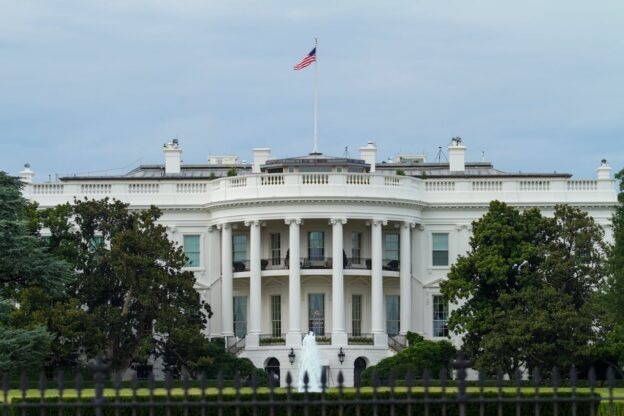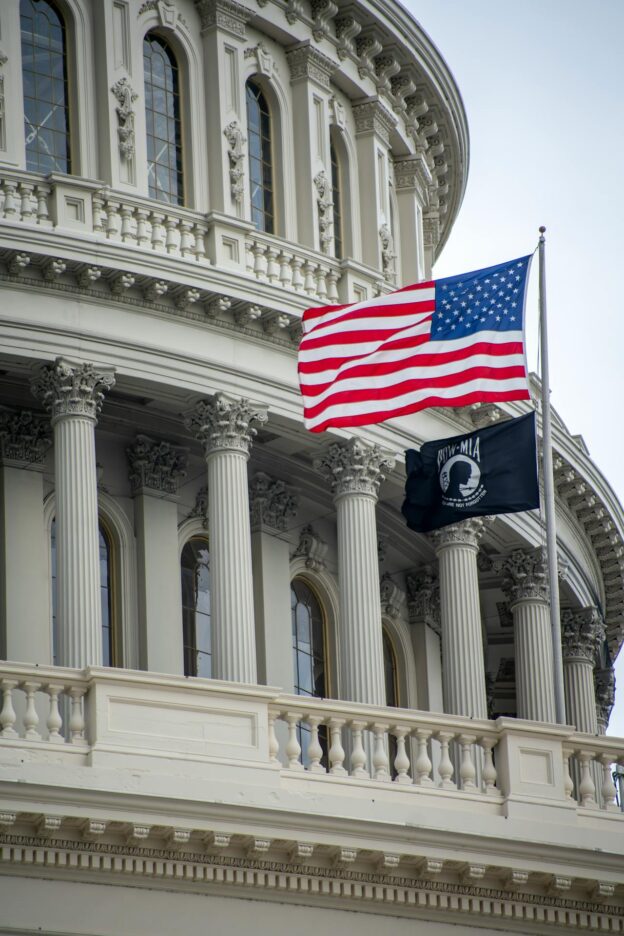Foreword
Scott Dodsworth, Managing Director and Senior Partner at GK Strategy
The central part of Labour’s election pitch to the country last year was unlocking economic growth. Over Labour’s first year in office, it remains clear that Energy Secretary Ed Miliband, with the backing of the Prime Minister and Chancellor, sees delivering energy security and the net zero transition as central to that.
The consistently high cost of energy, against the background of an ongoing cost of living crisis and struggling public finances, is contributing to growing scepticism about the transition to net zero – largely from the Conservatives under Kemi Badenoch, and an increasingly popular Reform party. Despite this, the Prime Minister has doubled down on net zero as part of the UK’s industrial strategy.
After something of a false start after the 2024 general election, the government is now moving at pace. It sees the remainder of 2025 as a crucial period to deliver on its promises to an impatient electorate: to bring down energy bills and push to 95% clean power by 2030. Since the spring, we have seen the government publish its Industrial Strategy, of which green industries were seen as a frontier sector. Ed Miliband also secured a healthy departmental budget in the June spending review despite cuts elsewhere. These, together with the wider cross government approaches to planning, infrastructure and the National Wealth Fund, are all signals that the government is kicking up a gear on its net zero delivery.
To deliver on its promises, the government is looking for solutions from businesses. There is a renewed willingness across Whitehall to engage with those who can partner with government to unlock the private investment to fund these commitments at the pace and scale required. There is also impatience within mission-driven departments to ‘get on with the job’ – including for DESNZ’s ‘Mission Control’ – so speed is of the essence. Good government relations have rarely been so important to businesses that want to be on the right side of the relevant policy debates underpinning this mission.
Our cross-sector and connected team at GK Strategy is immersed in energy and industrial policy. We work to support businesses and investors to better understand the political and regulatory environment and align our advisory services around your strategic and commercial aims. This report takes a closer look at the key pillars of the government’s net zero agenda: energy efficiency, grid and power supply, and transport decarbonisation.
In politically febrile times like these, it is important that organisations are consistently making their case to government so that they can maximise opportunities where they arise, as well as mitigate risk. We look forward to working with you to realise opportunities.
Energy efficiency – the quiet engine powering Labour’s net zero agenda
Sam Tankard, Senior Associate
In the race to net zero, energy efficiency is perhaps one of the less glamourous parts of the policy puzzle. The government’s mission to achieve 95% clean power by 2030 has dominated public messaging and policy bandwidth. But while clean energy generation captures the headlines and the government’s attention, reducing demand through insulation and electrified heating remains one of the more cost-effective levers available to a government with little money to throw around.
Retrofit and ‘fabric first’ measures – such as insulation upgrades and draught-proofing – are proven, scalable technologies that deliver immediate benefits, not least on household bills. After all, the cheapest energy is that we don’t use. With many households still feeling the impact of the cost-of-living crisis, voters are likely to judge the success of the energy transition by whether they feel it’s becoming cheaper to heat their homes. In that context, energy efficiency should be seen as not just central to climate strategy, but to the government’s economic and electoral strategy.
The Warm Homes Plan: A consolidated approach
The government’s flagship Warm Homes Plan aims to consolidate and scale existing schemes including the Warm Home Discount, Boiler Upgrade Scheme, and the Social Housing Decarbonisation Fund. It also introduces new Minimum Energy Efficiency Standards (MEES) across both the private and social rented sectors. Energy Secretary Ed Miliband successfully secured the full £13.2 billion needed to deliver the scheme in the June spending review – no small feat in a fiscal environment defined by restraint. This commitment is a clear signal of Labour’s intent to start to put energy efficiency on a par with clean energy generation – and of Ed Miliband’s strength within the Cabinet, despite the negative briefings against him.
Will the Plan deliver a genuinely integrated approach to home decarbonisation, or is it a rebranding of legacy Conservative programmes? The recent restructure of DESNZ – giving the Plan its own delivery team – suggests it will. Energy efficiency is also being linked to job creation, supply chain development, and regional growth. However, if this ambition is to be realised at scale, subsidies alone and piecemeal grants will not suffice. The sector needs a long-term investment framework that can attract institutional capital and mobilise private finance – one that de-risks retrofit projects, supports innovation across the supply chain and gives confidence to the investor community. This framework has not yet been brought forward, and its absence may hamper large-scale investment in the space.
Regulation will drive the market
Regulation is beginning to move the dial. Reforms to the Energy Performance Certificate (EPC) methodology will require more homeowners and landlords to invest in fabric-first improvements, smart controls, and low-carbon heating. From 2026, new MEES requirements and an updated Decent Homes Standard are set to kick in, compelling landlords to upgrade their properties by 2030. These reforms are expected to drive significant market demand through the remainder of this Parliament – providing a welcome growth stimulus for retrofit supply chains, innovators and engineers.
Clean heat still stuck in second gear
Progress on the clean heat transition continues to lag behind the government’s targets. Labour has consulted on expanding the Boiler Upgrade Scheme to include air-to-air heat pumps and heat batteries, reflecting a desire to support a range of technologies. However, political caution looms large. The backlash faced by Germany over heat pump mandates has made ministers wary of appearing prescriptive, particularly where upfront costs for consumers, and particularly for lower income households, remain high for these technologies.
Heat pumps are still significantly more expensive than gas boilers, both in terms of installation and ongoing energy costs. Public funding falls short of matching the scale of ambition set by national targets. As of May 2025, the UK had just 412 heat pumps per 100,000 people, compared to over 3,000 per 100,000 across comparable European countries, highlighting the significant implementation gap in the UK.
The electricity pricing trap
Underlying many of these challenges is a structural pricing problem. The UK’s gas-heavy energy mix means that gas sets the marginal price of electricity 98% of the time, compared to just 39% in other European markets. As a result, electricity remains artificially expensive, making the economics of clean heat harder to justify. Labour’s clean power push aims to shift this overreliance on gas but change will take time.
In the interim, the government is considering options such as rebalancing environmental levies away from electricity and onto gas, or absorbing them into general taxation. These options are politically sensitive and the nettle is yet to be grasped. The recent debate over zonal pricing in the electricity market review signals deeper tensions in how costs are distributed geographically and socially.
The pricing debate about who pays for energy in a way that is fair will be back soon enough. How this will impact the decarbonisation of heat will be one businesses should follow closely, and take the opportunity to share their view accordingly.
Energy efficiency may not dominate the net zero headlines, but for a Labour government seeking to deliver tangible economic outcomes, reduce bills, and meet its climate targets, it is increasingly central to the political and policy equation. The coming months will reveal whether this this is matched by delivery, investment, and a market framework robust enough to make retrofit a genuine national success story.
Clean power meets smart tech
Noureen Ahmed, Adviser, and Arth Malani, Researcher
The government’s Clean Power 2030 Action Plan, published late last year, positioned wind and solar energy as the backbone of the UK’s future energy system.
It also highlighted how these developments will support the rapid growth of Artificial Intelligence (AI) and the digital infrastructure underpinning it, particularly data centres. It is no surprise that clean energy and AI remain central pillars for this government, as they underpin both economic competitiveness and energy security in an increasingly volatile global environment.
The government is committed to securing a cost-effective, low-carbon energy system while catalysing the growth of new energy and technology industries. Leveraging cutting-edge technologies such as automation and AI will be crucial to accelerating the decarbonisation of the grid, reducing emissions, and enhancing system resilience. Against a backdrop of rising geopolitical tension and global energy market instability, the Action Plan – and the subsequent strategy documents like the Clean Energy Industries Sector Plan and Solar Roadmap – underscore the urgency of fortifying the UK’s energy infrastructure. These initiatives also work towards derisking much of these large scale renewable generation projects – particularly through changes to the contracts for difference auction programme.
Grid connections still an obstacle
One of the most pressing challenges identified in recent strategy documents is the exponential growth of the grid connection queue, which has expanded more than tenfold over the past five years. Financial and regulatory barriers have slowed progress, stalling renewable projects at a time when urgency is paramount. In response, the government is pivoting toward a more agile, readiness-driven grid connection regime. By reforming planning frameworks and moving toward a “get on or get out” approach to the queue with Ofgem and the National Energy System Operator, the government is sending a strong signal to renewable developers that this government is about more than just subsidies to stoke supply. The intended outcome is twofold: accelerating the deployment of renewable infrastructure while enabling the co-location of energy-intensive facilities, such as data centres and transformers, near these clean power sources. This strategic alignment demonstrates the increasingly symbiotic relationship between AI technologies and the energy transition.
This approach reflects the growing economic footprint of the UK data centre industry, which currently contributes £4.7 billion in Gross Value Added (GVA) annually, a figure projected to rise to £44 billion by 2035. Unlocking the productivity and innovation gains associated with AI and data centres will be key for the UK’s global competitiveness. Yet the growth of this sector brings significant energy challenges. As one of the most energy-intensive industries, data centres demand not only increased capacity, but a cleaner, more reliable energy supply to keep compliant with many businesses’ own climate ambitions – as well as the government’s. The path to net zero must therefore keep pace with the evolving needs of the digital economy. A coordinated approach between the Department for Energy Security and Net Zero (DESNZ) and the Department for Science, Innovation and Technology (DSIT) will be fundamental in aligning energy and digital infrastructure planning.
Powering the AI transition
To help navigate these challenges, the government has established the AI Energy Council, a cross-sector forum of energy and technology leaders focused on ensuring the energy system can accommodate the explosive growth of AI. The Council has a dual remit: to guide infrastructure planning for AI-related growth, and to assess the more than 200 bids from local authorities vying for designation as AI Growth Zones – regions earmarked to become hubs for AI development and deployment. These zones sit at the intersection of energy policy and regional growth, dovetailing with the government’s broader devolution agenda, which aims to empower local leadership in strategic authorities to unlock economic potential.
The AI Energy Council has recognised that without targeted interventions in energy security and infrastructure, AI-led growth could stall. Ensuring a stable, clean, and scalable energy supply for AI-intensive industries is not just a technical challenge, but an economic one. Preventing energy-related bottlenecks will be key to enabling innovation across all sectors – from manufacturing and transport to healthcare and financial services. As the UK accelerates its clean energy transition, AI will not only be a consumer of energy but also a catalyst for smarter, more resilient energy systems. AI-enabled grid forecasting, predictive maintenance, and autonomous energy trading are already beginning to redefine how power is generated, distributed, and consumed.
Taken together, these developments mark a new phase in the UK’s industrial strategy – one where the convergence of clean energy and digital technology is central to the nation’s economic, environmental, and geopolitical goals. As such, AI and energy should not be seen as separate policy challenges, but as intertwined pillars of a modern, secure, and sustainable economy.
Little slack in the government’s decarbonisation tightrope, especially for transport
James Allan, Senior Adviser
The government is walking a decarbonisation tightrope. Nowhere is this clearer than in its approach to transport. As the net zero consensus is fracturing, most acutely under building pressure from the right of the British political system, onlookers will have noticed a few shifts in government policy impacting transport decarbonisation. This includes a watering down of the Zero Emissions Vehicle (ZEV) mandate and a previously unthinkable policy position on Heathrow expansion for a Labour cabinet. These are the perhaps inevitable concessions that have to be made in the face of a seemingly undeniable fact: decarbonising the transport sector entails an element of economic trade off.
These two decisions, measured against what Labour committed to in its election manifesto, throw into sharp relief a common critique of this government: that the manifesto’s language was sufficiently opaque to allow for a significant degree of wiggle room. Now in government, there is plenty of talk of change, but a continuing weakness on policy detail and substance, not least concerning transport decarbonisation.’
Understanding the rationale behind the government’s policy choices will be critical for businesses and investors looking to engage with ministers. As policy positioning subtly changes in government from bold rhetoric to balancing economic pragmatism with climate ambitions, sectors such as aviation, freight and automotive will need to recalibrate their expectations. Businesses will need multiple channels of influence as transport decarbonisation spans a range of policy areas, priorities and government departments. For the Department for Energy Security and Net Zero, the focus is clean energy by 2030; for the Department for Transport, it is rail nationalisation and infrastructure delivery.
Backing Heathrow expansion
Expanding Heathrow is a long way off despite the government’s recent support. Ministers have set out four tests for approval, including i) compatibility with the UK’s climate change targets, ii) mitigations to increases to noise pollution, iii) and air pollution, as well as iv) providing economic benefit to all parts of the UK, not just London and the South East. The fast-tracked review of the Airports National Policy Statement will provide substance to these four tests and commitments to sustainable aviation fuel (SAF) are expected to feature strongly when the refreshed policy statement is published later this year.
The justification is clear. The expansion of Heathrow, while mandating that the industry transitions to SAF (which is in short supply globally) is immensely costly and requires high levels of capital investment to deliver. To support the transition, the government is legislating for a revenue certainty mechanism that aims to de-risk and attract private investment into this nascent technology. It is the familiar carrot and stick approach to transport decarbonisation of mandate and incentives.
Mild tweaks to the ZEV mandate
The government’s tweaks to the ZEV mandate reinstated the 2030 target of banning the sale of internal combustion engine (ICE) cars but relaxed the rules around which vehicles can be sold until 2035, including hybrid vehicles and ICE vans, and introduced greater flexibilities for manufacturers. The mixed reaction from the automotive industry suggests that ministers may have struck a workable compromise – a willingness to trade speed for political and economic deliverability.
Key to pulling off the transition to EVs is scaling up the deployment of EV infrastructure and chargers. Consumer confidence to purchase and drive an EV across the country is an important precursor of the transition to EVs. A lack of publicly available chargepoints risks this and stokes the flames of range anxiety often cited as a major barrier to buying an EV vehicle. Government work toward mitigating this risk is chiefly being delivered through the Local EV Infrastructure (LEVI) Fund but buried deep within the spending review published in June was £400 million to support the roll out of charging infrastructure from 2026-27 to 2029-30.
Walking the government’s tightrope
For businesses and investors, the key message is that the government’s transport decarbonisation agenda is no longer linear, but layered, tactical and coloured by a degree pragmatism. Backing Heathrow and making tweaks to the ZEV mandate indicate that the terms of reference are not solely climate related but also economic. Labour’s policy decision making has shifted from the aspirational and broad ambitions set out in its manifesto, to a slow recalibration of understanding better the trade-offs involved. For investors looking to capitalise on transport decarbonisation and businesses operating in associated sectors, the implication is clear: aligning with the government’s transport decarbonisation goals now requires a credible case for job creation and economic growth and cost efficiency. Those that can anticipate and influence shifts in government thinking stand to benefit, while those that wait for clarity may be too late to adapt and overcome.
Contact Information
Contact: 020 7340 1150
Louise Allen // Senior Partner & Chief Executive // louise@gkstrategy.com
Scott Dodsworth // Senior Partner & Managing Director // scott@gkstrategy.com
Lizzie Wills // Senior Partner and Head of Private Equity // lizzie.wills@gkstrategy.com
Sam Tankard // Senior Associate // sam@gkstrategy.com






